The publication of the latest Government Expenditure and Revenue Scotland (GERS) report has once again opened up debate about defence spending.
At the centre of the argument are two headline figures.
The first is the £5.1 billion that GERS allocates to Scotland for 2024–25 as its share of UK defence spending. The second is the £2.1 billion which represents the amount of defence procurement that the Ministry of Defence placed with industry in Scotland during 2023–24.
On the face of it the gap looks stark. For those in favour of independence it is proof that Scotland is not receiving value for money. For others it is evidence that critics of the GERS methodology are being selective in their use of statistics. Both figures, however, are constructed in different ways and they answer different questions.
The GERS accounts are not a record of money physically spent in Scotland. They are produced by the Scottish Government as an estimate of the country’s public finances within the UK. For reserved areas such as defence, the report allocates spending on the basis of Scotland’s population share. The result is the £5.1 billion figure, which is designed to capture the value of services provided to Scotland as part of the UK’s armed forces. This covers every aspect of defence, from procurement and operations to research, personnel and the nuclear deterrent.
The £2.1 billion number is narrower. It comes from Ministry of Defence accounts of procurement and represents contracts placed with companies in Scotland. That figure captures the economic value of jobs supported at the Clyde shipyards, where Type 26 frigates are under construction, or at Leonardo in Edinburgh, which builds radar systems. It has a direct and visible impact on the Scottish economy, which is why it is so often highlighted in political debate. But it does not include the salaries of service personnel, the cost of maintaining Faslane or RAF Lossiemouth, or the wider resources devoted to operations and capabilities that are located elsewhere but which still contribute to Scotland’s security.
This is where the distinction matters. The £5.1 billion does include spending that is not based in Scotland, yet that spending still plays a direct role in defending Scotland. RAF aircraft based in England provide air policing for the North Sea approaches. The Royal Navy’s carrier strike group, although based in Portsmouth and Devonport, provides deterrence for the whole of the UK. Trident submarines are stationed at Faslane, but the supporting facilities in England are essential parts of the system. Contributions to NATO operations in the North Atlantic and Baltic are funded across the UK but secure Scottish sea lanes and approaches as much as they do for any other part of the country.
Critics of the £2.1 billion figure, such as Ian Murray, the Secretary of State for Scotland, argue that presenting procurement spending alone as the total defence benefit to Scotland is misleading. Defence is a UK-wide system that cannot be broken into neat local accounts.
The problem is that neither figure on its own provides a complete picture. The £2.1 billion reflects real procurement with Scottish industry but ignores personnel and infrastructure. The £5.1 billion captures the full range of services Scotland receives as part of the UK’s defence system but does not translate into direct economic activity within Scotland.
A fuller account would recognise the importance of procurement, jobs, and industry in Scotland while also acknowledging the integrated nature of defence. The security of Scotland rests not only on frigates built on the Clyde or Typhoons at Lossiemouth, but also on aircraft flying from Lincolnshire, naval groups sailing from Portsmouth and collective NATO operations in the High North. The GERS allocation is intended to capture that wider reality.
Scotland’s defence footprint is significant. Faslane is home to the nuclear deterrent. Lossiemouth is central to the UK’s maritime patrol and air policing mission. The Clyde shipyards are building some of the Royal Navy’s most advanced warships. These activities represent billions of pounds of investment and thousands of jobs. Yet the full cost and value of these activities are woven into UK-wide totals and are not broken down in the GERS tables, which contributes to the perception gap between notional allocations and visible spending.
The latest row shows how defence figures can be pulled into political argument without the necessary context. Scotland does not receive a cheque for £5.1 billion, but nor does its security depend only on the £2.1 billion of local procurement. Both numbers are partial reflections of a much more complex picture. The truth is that defence spending outside Scotland contributes directly to Scotland’s safety.


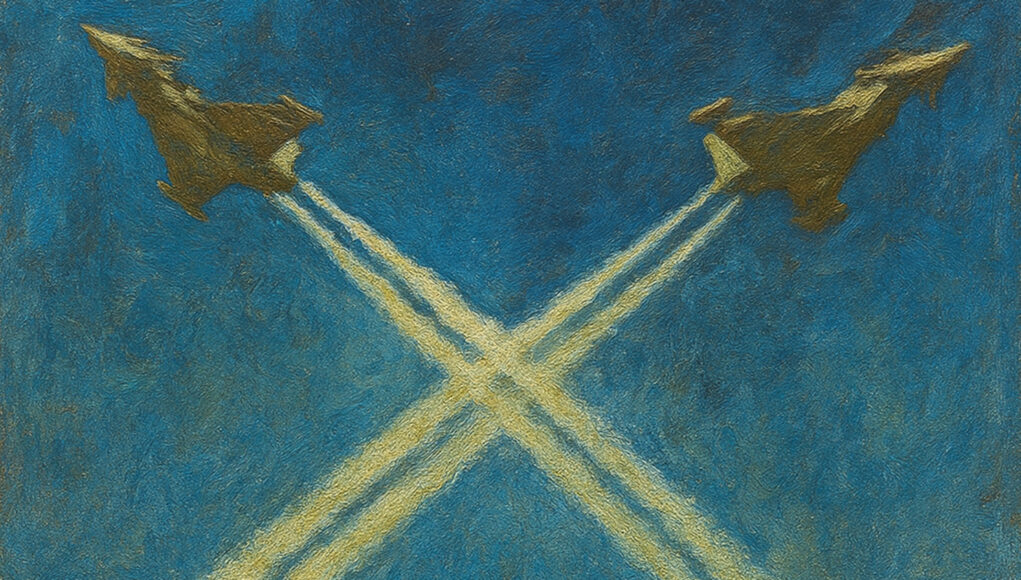

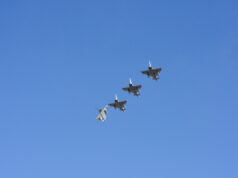

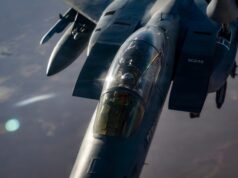
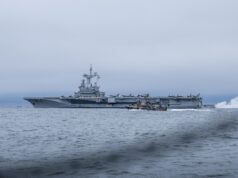
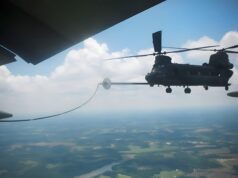
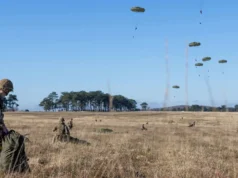
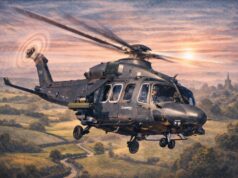

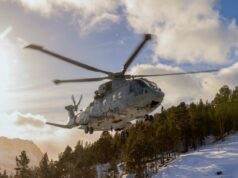

Why show Rafales doing the Saltire flag?
Artist licence !
Jon, I don’t think anyone else noticed !
ðŸ˜ðŸ¤”🤦â€â™‚ï¸
They’re not Rafales.
You are 100% correct as they are some sort of rough sketch/painting/AI generated picture which the author has chosen to indicate a Scottish symbol of airpower.
There are hints of Rafale, Grippen, Typhoon and J10.
Cannard positions, Wing shape/size, Twin Engines all add to the vagueness.
So the obvious answer would be to put out figures that do reflect actual expenditure in Scotland. Shouldn’t be too hard to separate the figures out and would save a lot of arguing.
It wouldn’t change anything; Scottish independence and the alleged unfair treatment by the UK government is one of those issues where facts are usually ignored in favour of whatever supports the argument being made.
No, not with the fanatics. On the other, taking away some of their ammunition wouldn’t hurt and might even be useful…
It’s about time we had a Scottish Article here, they are often overlooked. 👀👀
It’s only humour 😊
The whole GERS argument is a waste of effort. Both sides will not accept the figures produced from the other side so any argument is parallel. If Scotland was independent it’s reasonable to assume that, since every state in the north west of Europe is amongest the richest in the world , believes in the rule of law and has a welfare state that Scotland would be no different.
What it achieves economically will be up to the policies its governments pursue within the range of other states in the region, from Ireland descending to the UK on recent and current economic performance.
As regards defence the regional defence profile of states is very different from Iceland, Ireland to Denmark and the rUK. Established political policy is to be part of NATO so it’s reasonable to assume that Denmark or Norway provide some sort of loose model.
I agree the GERS exercise is not worth the effort. But I have to disagree that IScotland will be prosperous. It will be a debacle. It will have to borrow internationally at high rates ( note how SNP complains about funding from Westminster but won’t borrow off its own back – I wonder why…). It has I think the highest operating budget deficit in western europe and will be way off beam to join the EU in GDP/DEBT ratio. Defence spending from rUK will dry up. It will have to create its own currency ( and no backing from BoE). Need I go on??
have you undertaken an analysis of the economics of the other countries of North Western Europe in coming to your conclusions? if so, it would be
useful if you could share these.
Alternatively, have you considered that if the total annual public expenditure of an independent Scotland per GERS was increased by 10% and £66b for a Universal Basic Income of £12000 for every adult and child was divided by the square meterage of all public and private, rural and urban, occupied and vacant/ dilapidated land, floors and roofs in Scotland a tax rate of £13.50 per square metre would be set on urban land types? ( A modest £0.028 rate for rural land types would also be set). All other taxes could be abolished and the average after tax salary of someone in a modern semi would be increased to over £50k? The Scottish Government wouldn’t need to borrow. Do the sums !
Let’s look at the argument from a different perspective. If Scotland were independent, in your opinion, what would England gain? And what would England lose?
As a scot born and breed. The typical Indy supporter will pounce on any figure that cast Westminster in a bad light. Telling them that defence spending should be seen from a U.K. perspective is a waste of time.
However they usually scurry away when the big three of Currency, economy and Finance is mentioned.
Where’s the dog food salesman when you need him? !!!